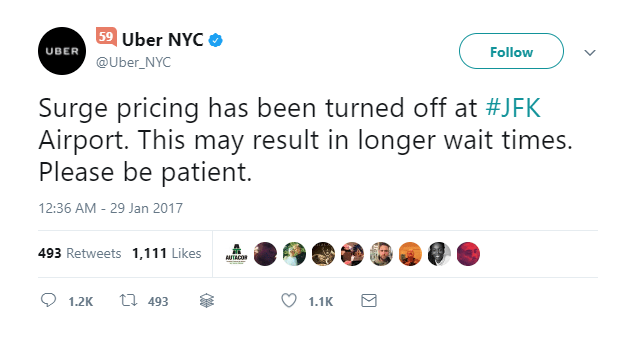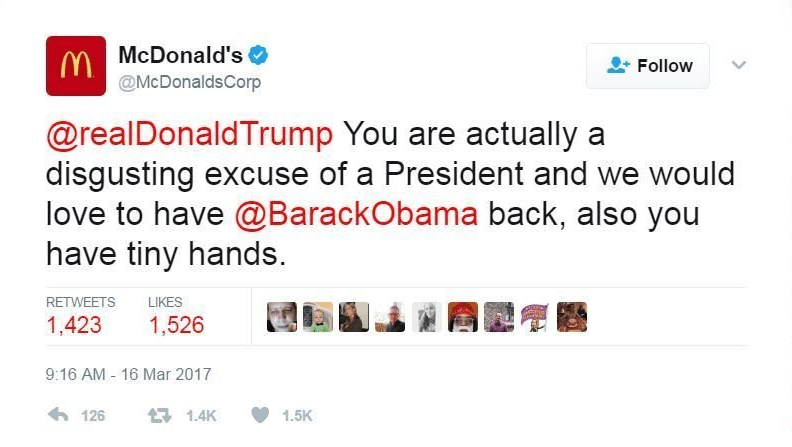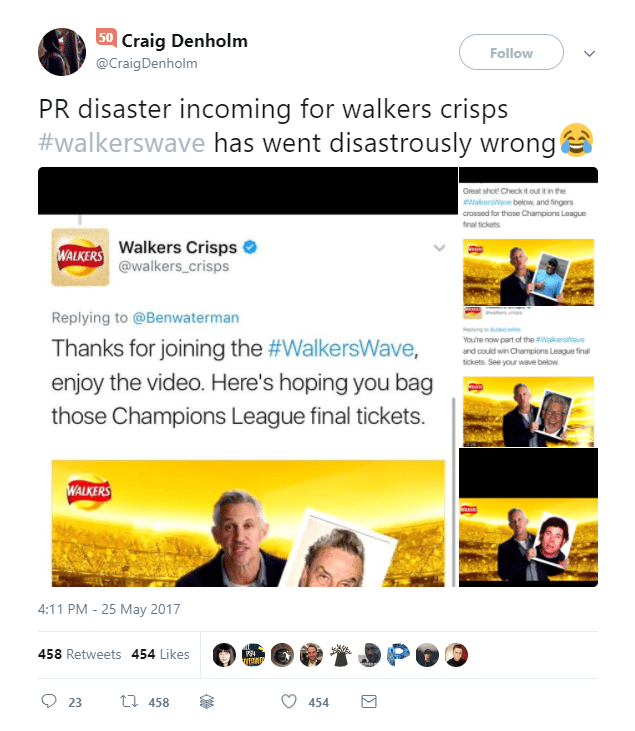5 of the Scariest Marketing Mistakes Made in 2017

You are sitting at your computer when suddenly the air seems to get colder, the lighting a little darker and chills run up your spine.
Despite the time of year, it’s not a ghost and it’s not the fact that you just realized you forgot to get candy for the trick-or-treaters either. You just noticed you sent an email to your boss before you had removed those cheeky side comments you meant to delete.
We’ve all been there before.
The text about how cute you think Brian is that you meant to send to your best friend, but accidentally sent Brian.
That selfie that was supposed to stay between you and your iPhone, which you accidentally uploaded for the social media world to see.
For a minute, it’s horrifying, mortifying; we throw our smart phones out of our hands and scream into our pillows.
But usually, we all get through it ok. We delete things quickly, apologize profusely and maybe lay low for a couple of days until life goes on.
But what happens when a company makes those same kinds of mistakes? When they don’t just text that they think Brian is cute, but instead accidentally tweet something that is offensive to thousands, maybe millions, of their customers?
The results can be much worse than just a little public embarrassment; it can be detrimental to their business. Let’s take a look at some of the scariest mistakes made in marketing in 2017 and see what we can learn. If you think you can handle it, we dare you to read on.
1. Pepsi makes the wrong kind of statement
Let’s start big. Everyone knows Pepsi. They are a hugely successful company which stems from a long history of successful marketing. But even the big guys can make mistakes.
In April of this year Pepsi released a commercial named “Live for Now” starring Kendall Jenner. In the commercial, Kendall Jenner is seen leaving her photoshoot to join an ongoing protest. The protest ends when a police officer accepts a Pepsi soda can from Kendall Jenner. Pepsi intended the drink to act as a reuniting force for everyone. This commercial created a huge public controversy as viewers found the ad vague and undermining the complexity of the social issues going on at the time of the commercial’s release. The company received a storm of backlash on social media and eventually Pepsi removed the commercial.
Recent social and political tension has brought companies into a more purpose-driven attempt at marketing, often seeking to make a deeper statement about the company’s ethical standpoint, not just how their product can make your hair shinier. However, brands that choose to get political need to be aware of the risk they are taking as they do so and know their target market well. Additionally, if their marketing seems to take advantage of a current topic, rather than contribute something to that conversation consumers are likely to reject it.
You can talk about current social issues, but do so sensitively and with a purpose.
2. The world gets mad at Uber
Back in January, everyone was talking about President Trump’s immigration ban against Muslims. New York Taxi drivers banded together for a strike against the legislation. As taxi drivers fought against the legislation, Uber simultaneously released a tweet announcing suspended “surge” pricing and promoting its service.

Consumers weren’t happy. Consequently, hundreds of social media users deleted their Uber accounts and #DeleteUber began trending worldwide. Uber’s competitor, Lyft, saw a boost in business as a direct result of Uber’s carelessness.
To avoid turning your business experience into a campfire horror story, never see political controversy as a business opportunity.
3. Ronald picks a fight with Donald
In March, a shocking tweet from McDonald’s came out, trashing President Trump:

The company quickly took the tweet down and credited the tweet to hackers. “Based on our investigation, we have determined that our Twitter account was hacked by an external source. We took swift action to secure it, and we apologize this tweet was sent through our corporate McDonald’s account,” McDonald’s spokeswoman Terri Hickey clarified.
While everything was handled smoothly in the end, mishaps like these can be extremely damaging to a brand’s image.
Make sure your websites and social media accounts are secure, and do your best to protect them. If something unfortunate does happen, respond quickly and directly.
As a word of caution, if you do make a mistake that is yours don’t just try and blame it on a hacker. You’ll pay for it in the same way IHOP did this year.
4. A different kind of “Walkers” scare
This Halloween, maybe you are dressing up as a “Walker” from the popular American horror TV series The Walking Dead. If you want a scarier approach however, you could mimic the marketing fail of the UK brand Walkers.
In May, the company launched a social media campaign asking fans to tweet a selfie using the hashtag #WalkersWave for a chance to win free soccer tickets to the UEFA Champions League final. Submissions were then used in a video where the pictures were featured in front of a soccer stadium. The problem: people decided to get a little creative. Amid the selfie submissions images of serial killers, sex offenders, dictators appeared and the company had to quickly remove the campaign.

Don’t run a marketing campaign where you can easily lose control and where you don’t monitor your content. If there is one thing internet trolls like, it’s opportunity. Don’t give them that.
5. Adidas poor choice of words
After this year’s Boston marathon, the company tweeted, “Congrats, you survived the Boston Marathon!”
While their intentions were surely good and innocent, after the 2013 Boston Marathon bombing that choice of words was simply not OK. The company recovered swiftly by immediately taking the tweet down and issuing a heartfelt apology.
Keep track of your social media plan and always, always, always double-check anything before you go. Catching one bad mistake is going to be worth it.
